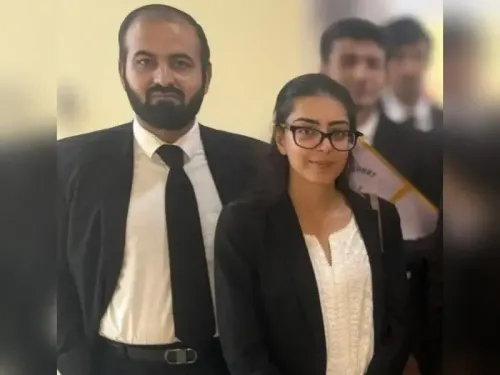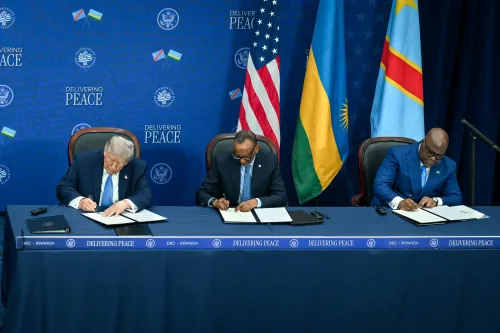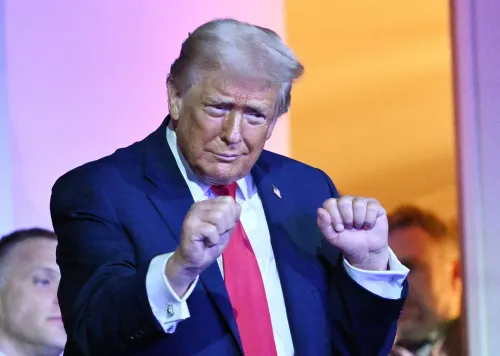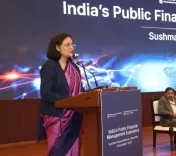What Measures is South Korean President Lee Proposing to Combat Fake News on YouTube?
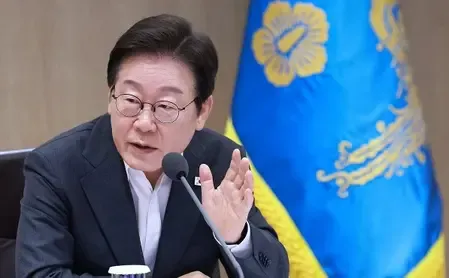
Synopsis
Key Takeaways
- President Lee Jae Myung is advocating for measures against fake news.
- Proposed punitive actions target YouTubers spreading misinformation.
- The government is reviewing the implications of Google’s map data export.
- National security remains a critical concern in digital policies.
- Ongoing international relations discussions are influenced by these issues.
Seoul, Aug 3 (NationPress) The President of South Korea, Lee Jae Myung, has directed the government to formulate strategies aimed at effectively curbing the dissemination of fake news on online platforms, particularly YouTube. This directive came to light through minutes from a Cabinet meeting held in June, which were released on Sunday.
“There are numerous cases where fake news is monetized,” Lee stated in the meeting minutes published by the Interior Ministry. “We must fundamentally prevent illegal actions aimed at profit.”
Lee proposed implementing punitive measures, such as exemplary damages, targeting those YouTubers engaged in spreading misinformation. He urged the Justice Ministry to evaluate possible actions, as reported by Yonhap News Agency.
During the same meeting, Lee inquired with former Foreign Minister Cho Tae-yul about whether the Vietnamese populace has sought an apology from South Korea, likely referring to the civilian massacre committed by South Korean forces during the Vietnam War.
He emphasized the importance of improving relations with Vietnam and instructed the government to explore options for accepting more foreign workers from the Southeast Asian nation as part of humanitarian initiatives.
Additionally, Lee urged the Land Ministry to reform the public housing system to control property price surges and ensure that returns from housing projects are redirected to the public sector.
Meanwhile, the South Korean government is anticipated to delay its decision on whether to permit Google to export the nation's high-precision map data abroad, pending the outcome of the upcoming summit with the United States, officials indicated on Sunday.
In February, the American tech giant applied to the state-run National Geographic Information Institute for approval to transfer 1:5,000 scale high-precision map data to its overseas data centers.
As per existing regulations, the review panel is obligated to notify Google of its decision within 60 days of the application, with a possible 60-day extension. The South Korean government has utilized this extension and is expected to reach a resolution by the second deadline of August 11.
“Given the circumstances, it is likely that the decision deadline will be pushed further,” an official remarked. “Arriving at a conclusion before the Korea-U.S. summit could impact other topics on the agenda for the meeting.”
Discussions are ongoing between Seoul and Washington regarding a date for a summit involving President Lee and U.S. President Donald Trump, as Trump mentioned last week that Lee is scheduled to visit the White House in two weeks.
The proposed map transfer has ignited intense debates concerning national security, digital sovereignty, and broader trade implications, with the U.S. citing it as a significant non-tariff barrier. However, this issue was excluded from the recent tariff negotiations between the two nations.
“Concerns related to security, including the map issue, will be addressed in the upcoming Korea-U.S. summit,” an official from Seoul's presidential office noted.
The determination regarding the Google application will be made by the map data export review panel, which includes officials from key ministries such as Defense, Foreign Affairs, Industry, and Science, along with the National Intelligence Service.



